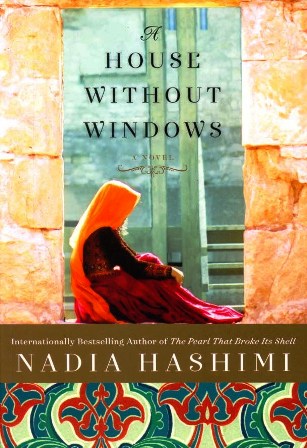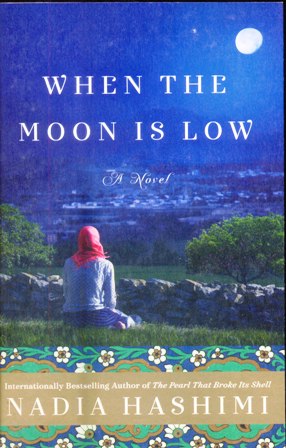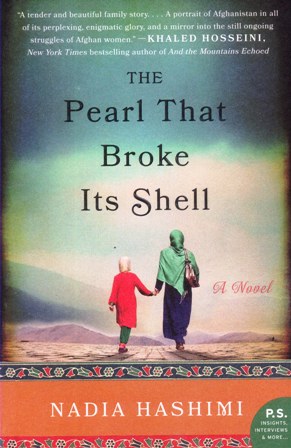-
A House Without Windows
If Zeba had been a woman less ordinary, Kamal might have seen it coming � a gnawing feeling or at least a few hairs standing on end. But she gave him no warning, no reason to believe that she would be anything more than she had been for the last two decades. She was a loving wife, a patient mother, a peaceful villager. She did nothing to draw to attention to herself. But now, nothing would be ordinary again. Zeba, an ordinary Afghan housewife and mother of four, has been arrested for murder after her husband, Kamal is found brutally murdered with a hatchet in the courtyard of their home. Nearly catatonic with shock, Zeba is unable to account for her whereabouts when he met his end. Her children swear their mother couldn't have done it. Kamal's family is sure she did and demand justice. Barely escaping a vengeful mob, the ordinary Afghan housewife winds up in a women's prison awaiting trial. There she meets a group of other women whose paths have led them to the same bleak cells - 18 Year old Nafisa, caught sharing a meal with a teenage boy,imprisoned to protect her from the ""honor killing"" her father demands, 25 year old Latifa, a teen runaway in a leather jacket who first landed in prison for vagrancy but has stayed because it offers better shelter than the world outside, 20 year old Mezghan, pregnant with her lover's child, awaiting a court order that will force him to marry her. The younger women all wonder if Zeba really is a cold - blooded killer, or if her husband somehow deserved his fate, or if, like them, she's been imprisoned for transgressing some rule of society without actually breaking a law. For them, prison is as much a haven as a punishment and the sisterhood they form inside is as lively and unexpected as the world outside is harsh and unforgiving. Yusuf is the lawyer assigned to represent Zeba. Born in Kabul, his family fled Afghanistan when he was 11, eventually landing in Queens, where he worked his way through college and then law school. A passion for human rights and a desire to help his beloved homeland, sends him back to Afghanistan, hoping to help patch together a functioning legal system after the fall of the Taliban. Now the fate of an accused murderer - A seemingly ordinary housewife is in his hands and Yusuf is discovering that, like the Afghanistan he thought he knew, Zeba and her story may not be at all what he expected.
-
When The Moon Is Low
In Kabul we meet Fereiba, a schoolteacher and her husband, Mahmoud, a man whose love for her was greater than any love shed ever known. But Fereibas middle class world of education, work and comfortable family life implodes when the Taliban rises to power. Mahmoud, a civil engineer, becomes a target of the new regime and is murdered by local henchmen. Forced to flee Taliban controlled Kabul with her three children,Fereiba has only one option - find a way to cross Europe and reach her sisters family in England, who have offered them asylum. With forged papers and help from kind strangers, they cross the mountains into Iran by night. Exhausted and brokenhearted but undefeated, Fereiba manages to smuggle them as far as Greecebut in a busy market square, their fate takes another turn for the worse when her teenage son Saleem becomes separated from the rest of the family. Faced with an almost unimaginable choice, Fereiba makes the desperate decision to continue on to London with her daughter and baby while Saleem falls into the shadowy underground network of undocumented Afghans who haunt the streets of Europe s capitals. From the refugee camps of Greece, through Rome and even Paris, Fereiba and Saleem struggle to reunite, to survive and to find a place where they can begin to reconstruct their lives. Like The Pearl That Broke Its Shell, this is a heartfelt revelation of a novel, extremely readable and thought-provoking, with characters who haunt the reader long after the last page is turned. And yes, like Pearl, this is a page-turner that ends happily.
-
The Pearl That Broke Its Shell
Kabul, 2009 - Growing up in a family of with five daughters and no sons, Rahima and her sisters can only sporadically attend school and then, as they grow older, can rarely leave the house. Their mother struggles to support the family as their father becomes increasingly addicted to drugs. But one day their aunt, Khala Shaima, makes a suggestion-as a bacha posh, Rahima can dress and be treated as a boy-until she is of marriageable age. She will be able to attend school. It's an old custom, but one that most of society turns a blind eye to when girls are young. And then Khala Shaima begins to tell a story that transforms Rahima's life - the story of her great great-grandmother, Shekiba. Kabul, 1909 - Shekiba, the daughter of a rural farming family, is disfigured in an accident as a child. When her parents and siblings die in a cholera epidemic, she has no one left to support her and is treated as little better than a slave in a relative's home until she is able to escape her life of drudgery by dressing as a man. Through a rare stroke of luck, she becomes one of the guards of the king's harem in a lavish palace in the capital city and eventually manages to make a life for herself one that ultimately includes a husband and children. This is the entwined stories of two Afghan women separated by a century who find freedom in the tradition of bacha posh.



